'We're not here to judge... if people need us, we come': How the RNLI London crews keep residents, tourists and even dogs safe from the Thames
The RNLI's two busiest lifeboat stations aren't on the coast: they're the Tower and Chiswick lifeboat crews who keep people safe on the Thames in Central London. Katy Birchall reports.

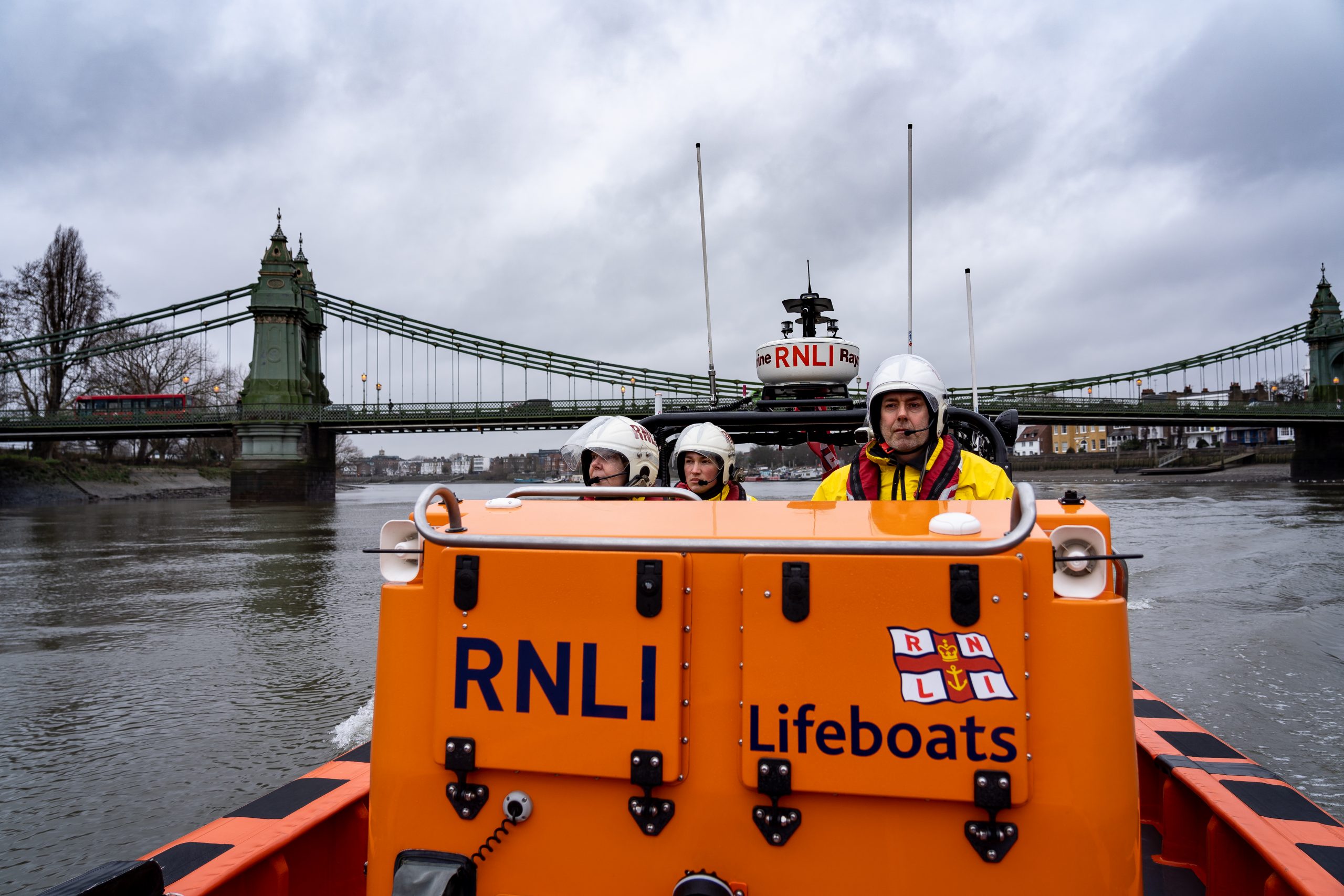
Exquisite houses, the beauty of Nature, and how to get the most from your life, straight to your inbox.
You are now subscribed
Your newsletter sign-up was successful
‘As soon as people get in the water during training, you can see it on their faces — they know straightaway whether or not this job is for them,’ explains Chiswick RNLI helmsman Glen Monroe. ‘It’s a sobering and important exercise, because the Thames doesn’t let up. The river may look calm, but the tide is very powerful.’
Chiswick Lifeboat Station is one of four stations that operate on the River Thames, with crews of full-time members and volunteers working around the clock to provide rapid assistance to anyone who finds themselves in trouble in the water.
For some, the fact there are London-based stations may come as something of a surprise — the RNLI tends to conjure images of lifeboats battling crashing waves in fierce weather conditions to reach someone at sea, but the tragic 1989 Marchioness disaster, when a boat full of partygoers collided with a dredger and 51 people lost their lives, showed that a dedicated rescue service was much needed on the Thames.
Operations began in 2002, with the RNLI originally expecting between 100 and 200 incidents a year. The true number turned out to be far higher: in 2018, there were 1,022 lifeboat launches on the Thames.
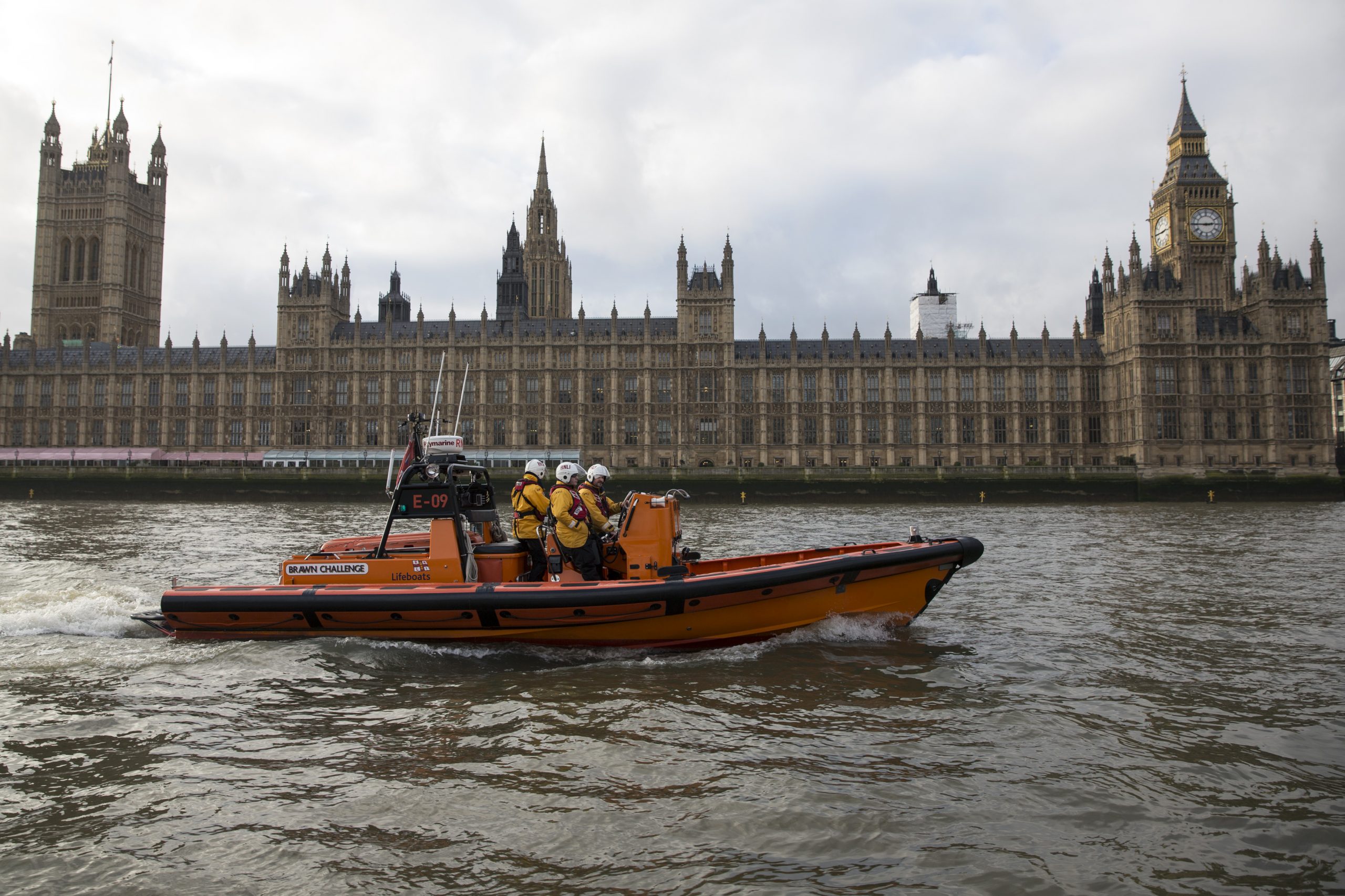
The four London lifeboat stations — at Chiswick, Tower, Teddington and Gravesend have collectively launched more than 14,000 times, saving hundreds of lives — a remarkable feat when you consider that the RNLI is funded by charitable donations and a portion of its crews is made up of volunteers, fitting in shifts around their day jobs.
‘Everyone here is from different walks of life,’ says fellow Chiswick helm Neil Ceconi. ‘We have a laugh; a sense of humour is essential. There are hard parts of the job, but our training gets us through them. We do a boot camp with the volunteers and we go through all the worst scenarios.’
'We’ll do five jobs of pulling people out of the water and one where we help a dog, and the dog will be the rescue that's all over the press and social media'
Mr Monroe emphasises the importance of trust and teamwork in their line of work — ‘if something goes wrong, it’s not only on one person, it’s on the whole boat’ — and that, with the river’s cold temperature, fast pace, heavy water traffic and changing tides, timing is of the essence.
Exquisite houses, the beauty of Nature, and how to get the most from your life, straight to your inbox.
The lifeboat is launched from the pier within 90 seconds of the coastguard’s call and the total time it takes for the crew to arrive at the scene of an incident from the moment the bell rings at the station is, on average, merely seven minutes. ‘We don’t dawdle,’ Mr Monroe says simply.
Unlike the coast, there are no patterns to incidents on the Thames — it doesn’t get noticeably busier in the summer months, for example — so the stations are manned 24/7. ‘No two days are the same,’ says Mr Ceconi. ‘You never know what’s going to happen.’
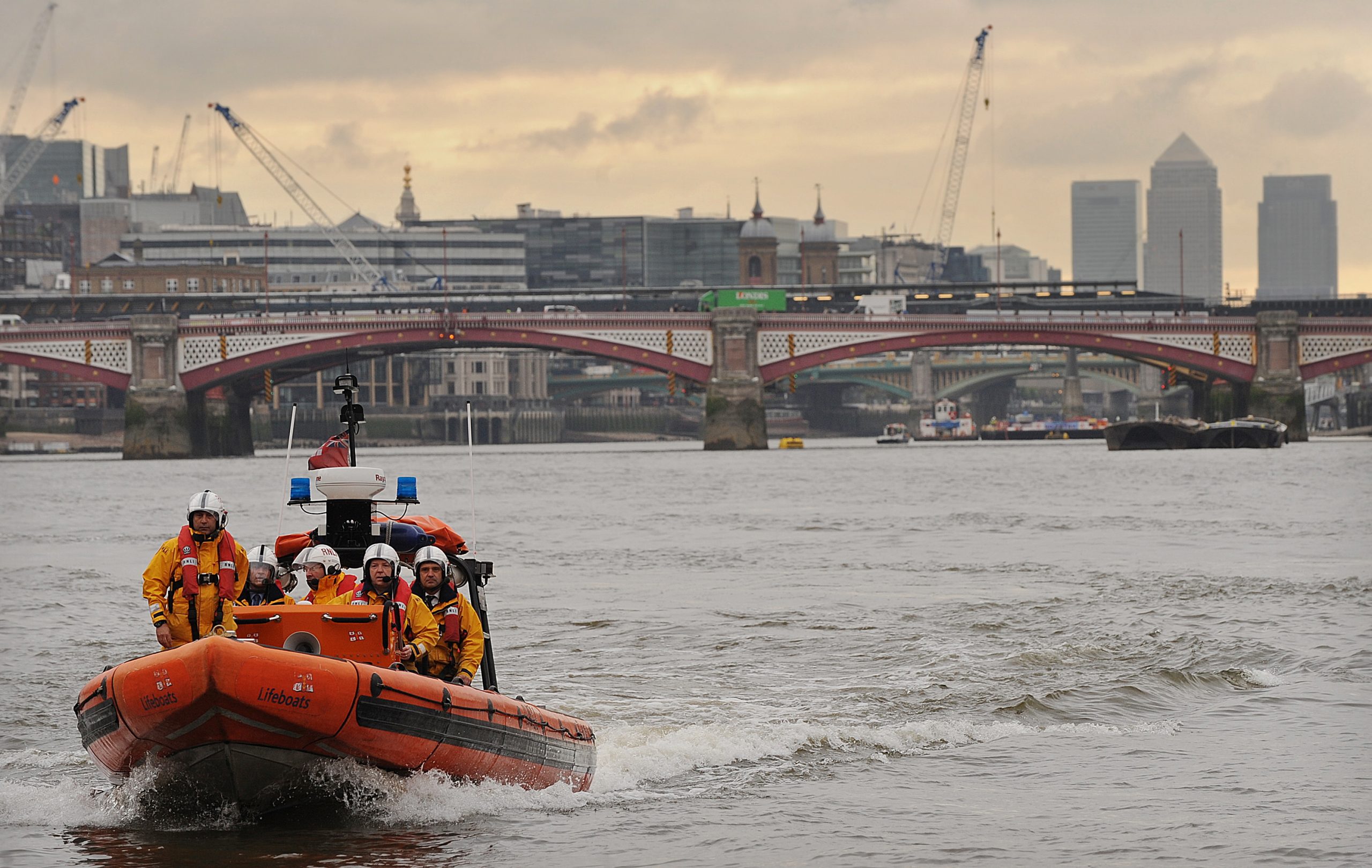
The crew is also never sure just who they’ll be saving, whether an adult, child or a four-legged furry friend. ‘We’ll do five jobs of pulling people out of the water and one where we help a dog, and the dog will be the rescue all over the press and social media,’ he laughs.
Attempts to rescue beloved canine companions from the Thames often lead to owners risking their own safety. ‘A lot of people don’t instinctively think of us when they go in to rescue their dog. They don’t think that we’ll come out for an animal, but we will,’ points out volunteer Alice Beetlestone. ‘Last year, we rescued several dogs. We even went out to save a goose,’ she adds with a smile.
'He was very embarrassed when we got there. But it doesn’t matter to us; we’re not here to judge... If people need us, we come.’
Despite the well-known safety advice not to follow a pet into the water, Mr Monroe acknowledges that it is much easier said than done. ‘We’re all animal lovers here; we put in as much effort into saving a dog as we do a human. We’re not here to determine which life is more important. It’s a life. We understand that a dog is a member of the family, so we know we can’t stop people from going in if they see their dog in trouble. The important thing to remember is, if you’re going to go in, give us a call first.’
There are some incidents with less understandable rationale behind them. ‘This summer, a man jumped off a pier and we were called out to help,’ recalls Mr Ceconi. ‘He’d thrown his girlfriend’s trainers into the Thames for a laugh and then gone to fetch them. He was very embarrassed when we got there. But it doesn’t matter to us; we’re not here to judge or police the river. If people need us, we come.’
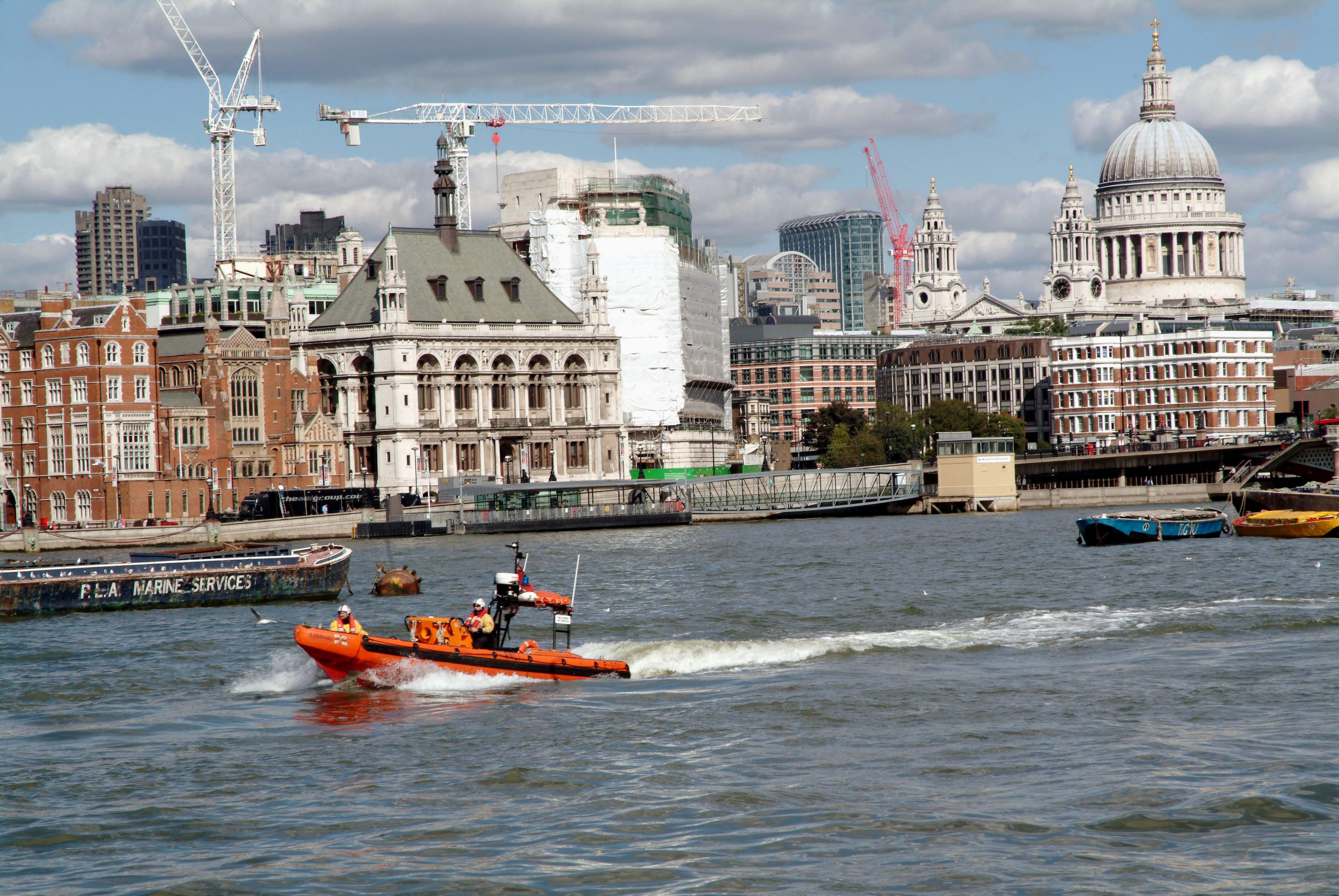
Chris Gamblin, who joined as a volunteer five years ago, motivated by a near-death experience he had in the water as a child, highlights the organisation’s essential prevention work, as well as its rescues. ‘We host a lot of school visits at the station and we have stands at dog shows, shopping centres and clubs,’ he explains.
‘It’s important to get out there and educate, especially locals who live near the water — the community safety volunteers work very hard,’ he adds, before the rest of the crew begin to tease him mercilessly about his cardboard cut-out that apparently stands pride of place in a local rowing club. The camaraderie of the Chiswick lifeboat station is uplifting and, one imagines, necessary — if sombre incidents are mentioned during our interview, they are not dwelt on.
RNLI founder Sir William Hillary famously said ‘with courage, nothing is impossible’ and there is no doubt this charity’s motto still stands true today, whether at sea or here in the capital. ‘The biggest message we can put out is that we are here,’ concludes Mr Monroe. ‘If you need us, call. We’ll be on our way.’
In an emergency on the River Thames, dial 999 and ask for the Coastguard. To make a donation or learn more about volunteering, telephone 0300 300 9990 or visit www.rnli.org.
This article first appeared in London Life, Country Life's monthly pages dedicated to getting the best out of life in the capital.
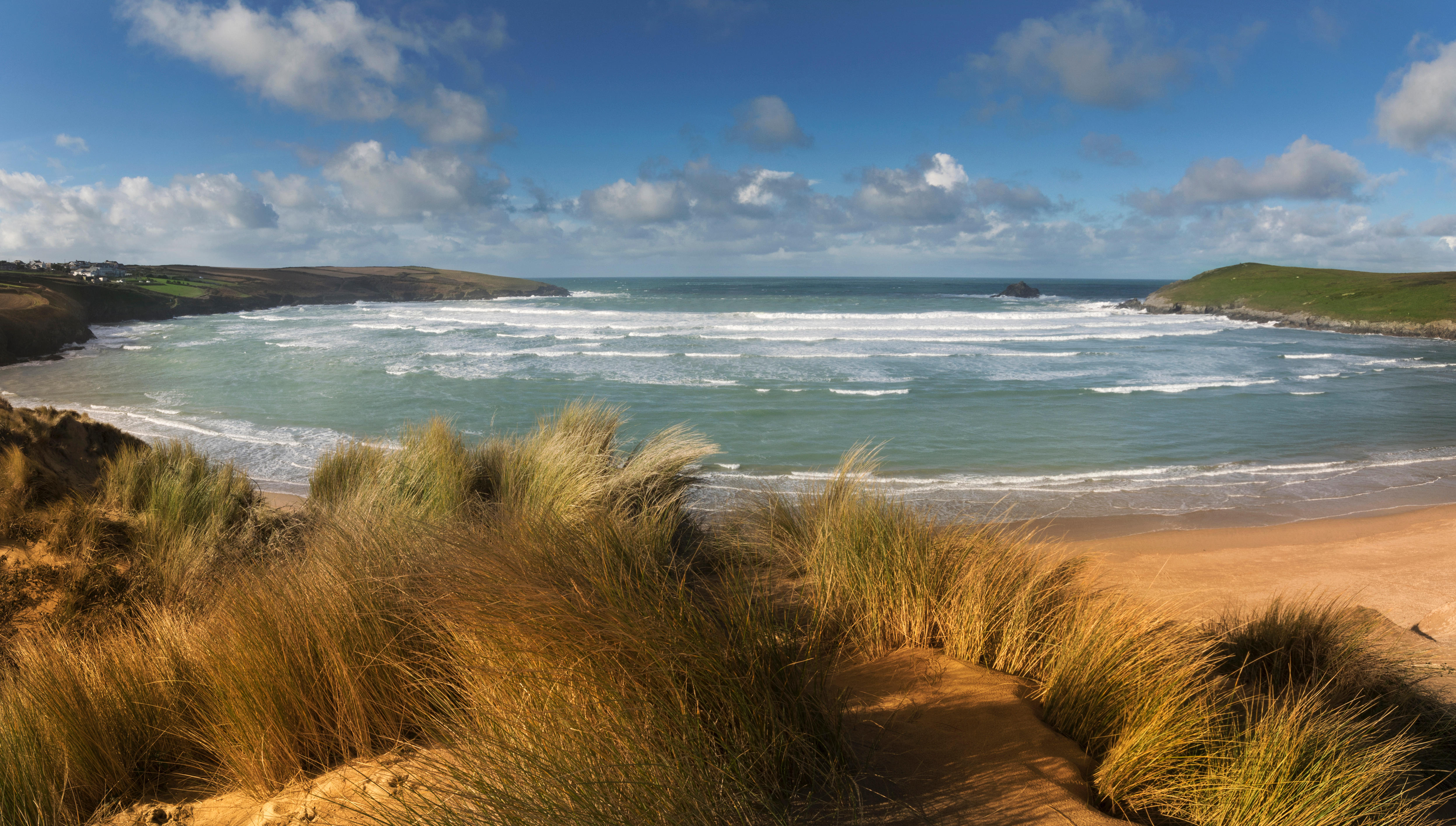
Storm damage leaves Cornish beach 'unpredictable and dynamic' with rise in lifeboat rescues
Storms in 2014 altered the course of a river across Crantock Beach but the National Trust says a safety plan
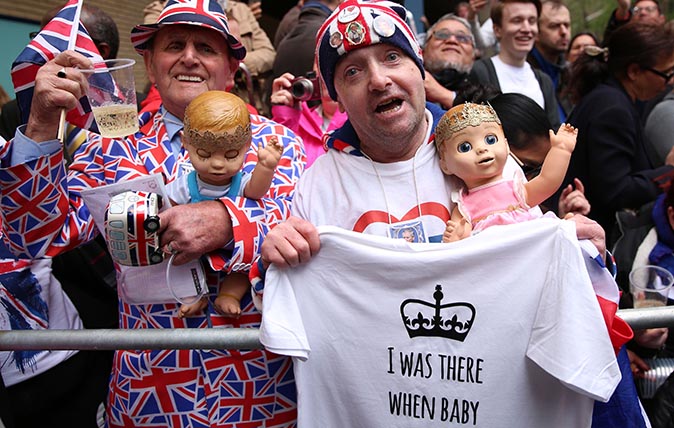
Nine pictures that show just how bored royal photographers can get while waiting for a baby
Monday's happy news about the new royal baby meant joy for millions, and hours of waiting for others.

The incredible story of Britain's hundreds of regional accents – and while they'll last forever
The British Isles’ rich landscape of regional accents doesn’t only define who we are, it’s part of our cultural heritage,
Katy Birchall is a journalist and the author of several young adult and teen novels, including The It Girl series and the Hotel Royale series. She has written a retelling of Jane Austen’s Emma for the Awesomely Austen series and the Netflix spin-off novel Sex Education: The Road Trip. She is also the author of several romantic comedies for adults including The Secret Bridesmaid and The Wedding Season. She writes romantic fiction for young adults under the name Ivy Bailey, romantic-comedy under the name Katrina Logan, and romantic sports fiction for adults under Katherine Reilly. She lives in London with her husband, daughter and rescue dog.
